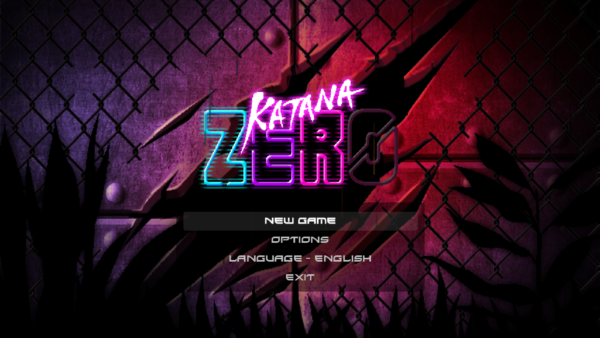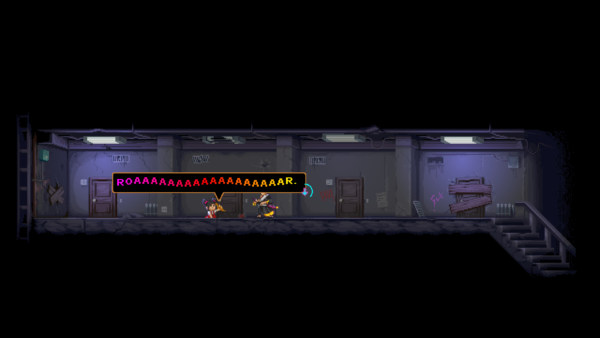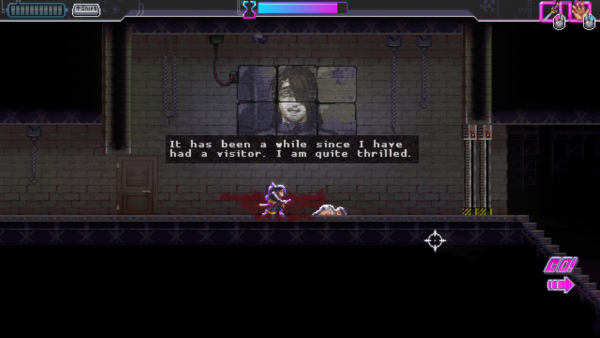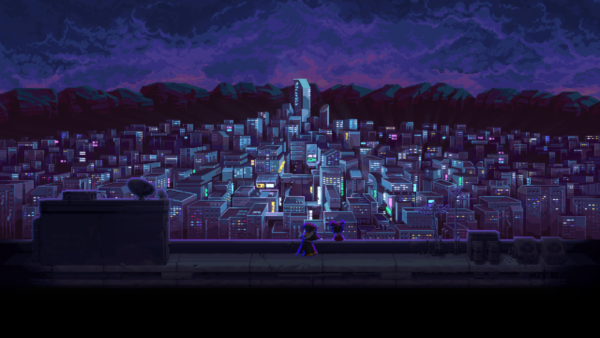Steam’s recommendation engine, despite the unholy treasure trove of data they have on what everyone plays, is total arse. Even the new discover queue is a hit and miss affair; weighted extremely heavily towards the last handful of games you’ve played. I’d know too as I got recommended dozens of visuals novels after playing Dream Daddy and not a single other visual novel game (I don’t count Pyre in that genre, for what it’s worth). Suffice to say I don’t have a lot of trust in it and there’s not many games from there that I end up buying. Katana ZERO is an exception to this rule however as it popped up as a recommended game for me and was bought shortly after. The videos were just enough to grab my interest but its solid mechanics, great artwork and perfect game length is what makes it one of 2019’s more interesting titles to date.

You are a samurai assassin, blessed with the gift of precognition. This allows you to look into the future and plan out your moves, ensuring that no target is outside your reach. However you know nothing of your past, save for the fact that you were involved in a great war some time ago and you’re haunted by nightmares from your childhood. Your therapist is helping you though and thankfully the dose of the drugs he gives you is going down. So you keep doing his bidding, taking out targets that he gives to you after each session. Still though something feels off, time seems to flow strangely every so often, the past, present and future mixing together until they all coalesce back together. Although that can’t be right, time always flows forward right?
Katana ZERO has some of the best pixel art I’ve seen in recent times, seamlessly mixing in modern elements that give it a really nice visual flair. This is made all the more impressive that it’s created in GameMaker, something which has a reputation much like Unity for having a certain kind of aesthetic for all titles built with it. The frame rate was also consistently high, something that I’ve definitely not seen done a lot with other GameMaker based titles. On top of this Katana Zero has a great original sound track, one that’s available in ogg format in the game’s base directory should you happen to want it. Overall I’m very impressed with Katana ZERO’s level of craftsmanship.

Mechanically Katana ZERO is a kind of beat em up puzzler as every level is about planning out your moves, figuring out what triggers what and how to overcome seemingly impossible scenarios. You have a couple key mechanics at your disposal: roll which makes you invulnerable, the ability to slow down time significantly for a short period and your usual array of 2D melee combat mechanics. You’ve got one life and a single hit will take you down so you’ll have to plan your attack route carefully. There’s no upgrades, items or inventory to manage; all you have to do is make it to the end of the level by laying waste to everything in your wake. Of course that’s much easier said than done but Katana ZERO provides ample challenge without being unnecessarily difficult. A fine line to walk in this age of Dark Souls clones who are trying to out compete each other in brutality.
The combat is incredibly satisfying when you’re able to clear a stage in a single section, giving you that lovely feeling of being the badass ninja assassin. Of course there’s certain levels which have the “fuck you player” mechanics in them, I.E. things right at the end of levels that’ll kill you instantly and the only way to know about them is to play the level. The boss fights could also prove challenging for some as they all have very particular mechanics that aren’t particularly straightforward. Still Katana ZERO’s combat feels a lot more forgiving than other, similar titles that I’ve played in the past and I think that’s one of the reasons that it didn’t feel like a complete chore to play through to the end.

I only have minor gripes about Katana ZERO which says a lot about it’s quality. Every so often the game would lose its capture of the mouse which meant that it’d shoot out the side of game window and onto my browser running on the second monitor. Clicking would then minimize the game and, most often, lead to a death. The game can also be quite visually confusing when a lot is happening on screen, something which can make it rather hard to understand exactly why you died at one particular time. For me it always seemed to be the shotgunners because, despite being able to reflect the projectiles, it appears you can only reflect one of them. Given there’s like 20 of them coming at you it’s pretty much guaranteed death, even if you hear the ting of the reflected shot. Other than that Katana ZERO was pretty much solid.
The story of Katana ZERO is really what brings it all together though as it’s well thought out and given ample time to develop over the course of your playthrough. Initially it just seems like another typical super soldier story but it quickly starts morphing as you uncover other elements that I can’t discuss without spoiling it. I’m not quite sure how much control you have over the various elements but there was definitely enough freedom of choice to make me feel like I had some control, which is probably all you really need in the end.

Katana ZERO will go down as one of my big surprises for 2019, coming out of nowhere and providing an experience that is just well done all round. The art, music and mechanics are all on point, providing ample amounts of challenge without making it difficult for difficulty’s sake. The story is engaging, well written and appears to give you just enough influence to make you feel like you’re in control of what’s happening on screen. I could go on but realistically if your interest is piqued I don’t think you could go wrong by giving Katana ZERO 4 hours of your time.
Rating: 9.0/10
Katana ZERO is available on PC and Nintendo Switch right now for $21.50. Game was played on the PC with a total of 4.6 hours playtime and 16% of the achievements unlocked.




[…] Katana Zero 9.0/10 […]